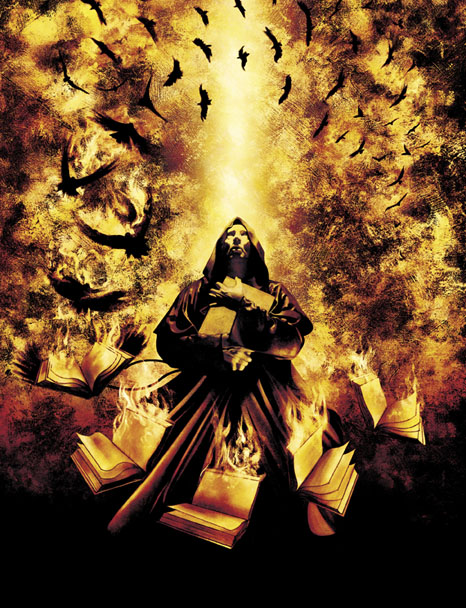Hugo Review: A Canticle for Leibowitz by Walter M. Miller Jr.

A Canticle for Leibowitz by Walter M. Miller, Jr is one of the leading works in the post apocalyptic sub genre. This is a sub genre that I generally do not care all that much for. Its a bit better in movies that are generally far more action movies than real apocalypse. This story didn't change my mind on this type of story but it was still good in a depressing sort of way.
This story is separated in three parts. Each part takes place in a different era. The first a couple of generations after a nuclear apocalypse as the world has destroyed almost all knowledge. The next a few centuries after with the beginning of a new renaissance as things like electricity are being found and the third in a age similar to ours but more advanced with spaceships and another nuclear standoff. The connection between these three ages is a monastery and the monks of the order of Leibowitz. A scientist who turned to the church for sanctuary after the nuclear war when angry people were hunting down anyone who had knowledge. He began to hide books along with the other monks and was able to save a small sliver of knowledge for a time when it might be useful again.
The first part of the story actually has a fair amount of humor. Following the life of a novice named Francis Gerard. The boy discovers a few relics of the saint. The difficulty is that the abbot is afraid that too many will cause the canonization process to be slowed. Eventually though the man is made a saint.
The second part focuses around a few more character but the main one is kornhoer who is able to create an arc lamp while the other scientists of the world are trying to gain power and the size of countries begin to grow.
The third part focuses on the likelihood of another nuclear war. Without spoiling the ending the order of Leibowitz is still central to the plot at this time as are the questions of whether knowing the past can actually save us from the future.
This is a story that looks like science fiction, sounds like religious fiction and in many ways is neither. This focuses on a question that is still important but more so know, are we as humans destined to destroy ourselves?
This is explained in a couple ways in the story but perhaps the best is in the religious symbolism used. The garden of Eden story here is used. Mankind has been tricked by the serpent into taking from the tree of the knowledge of good and evil. Using this knowledge we are able to gain the infinite knowledge and infinite power of god or at least enough of it but what we do not have is the infinite love which can temper those two things and so that power will cause us to surely die.
It is very hard to explain this book or understand it because it is not one thing. It is called literary fiction, in the sense that people like to use to insult science fiction, fantasy, apocalyptic fiction and of course science fiction. This is not for everyone and I don't know that I care enough to read it again but it was worth reading.